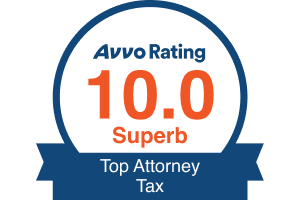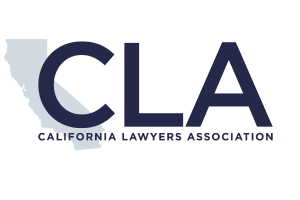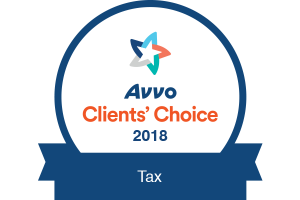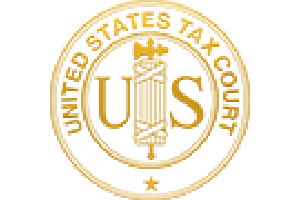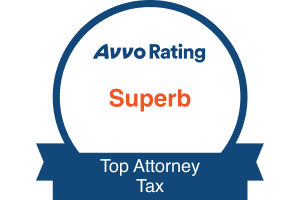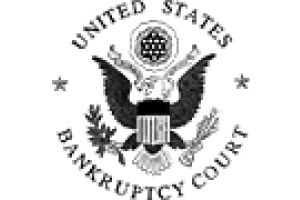Getting Results
California Sales Tax Audit
Sales tax audits in California is the primary tool used by the California Department of Tax and Fee Administration (CDTFA) to ensure businesses comply with the state’s sales and use tax laws. These California sales tax audits verify that businesses in the Los Angeles area have accurately collected, reported, and remitted California sales taxes on taxable transactions. For businesses operating in or selling into California, understanding the sales tax audit process, the likelihood of being audited by CDTFA, and the potential tax consequences—including criminal prosecutions—is essential for maintaining compliance and minimizing legal risks. Our Los Angeles tax attorneys represent business owners in Los Angeles area and throughout California during the process of their California sales tax audits, criminal tax prosecutions and out-of-state tax audits based on nexus to California, providing the most comprehensive legal protection for businesses during their California sales tax audit proceedings.
The CDTFA sale tax audits approximately 1% of active sales tax accounts each year, focusing on businesses most likely to have inaccuracies in their tax reporting. While exact figures for the total number of sales tax audits vary annually, the CDTFA’s sales and use tax audit program targets a mix of random and risk-based selections. In the fiscal year 2023–2024, the CDTFA identified over $626 million in sales tax deficiencies through its sales tax audit program. Majority of these tax audits were conducted in Los Angeles area and the greater San Francisco, San Diego and San Jose sales tax zones.
The selection process for California sales tax audits is not entirely random. The CDTFA uses sophisticated data analytics, comparing sales tax returns with federal tax filings (e.g., IRS returns) and other sources like vendor or customer audits, to identify discrepancies. Businesses with high sales volumes, a high ratio of exempt sales, or those in industries prone to noncompliance are more likely to be audited for sales tax. Additionally, the CDTFA conducts managed audits, where businesses self-review their records under CDTFA guidance, and computer-assisted sales audits, which leverage technology for remote analysis. These approaches allow the CDTFA to cover a broader range of businesses efficiently. Our Los Angeles tax lawyers provide the highest level of legal defense for business owners facing sales tax problems.
Sole proprietors are audited more frequently than small business corporations (e.g., C corporations, S corporations, or LLCs) in the Los Angeles area due to a higher incidence of errors in self-prepared returns. The CDTFA also conducts field billing orders (FBOs), which are shorter reviews covering less than the standard three-year look-back period, adding to the total sales tax audit activity. While precise annual sales tax audit numbers are not publicly detailed in recent data, the CDTFA’s focus on high-risk sales tax accounts suggests thousands of tax audits occur yearly, with a significant impact on state sales tax revenue.
Annual Number of Criminal Prosecutions
Our tax attorneys in Los Angeles provide the most comprehensive and highest level of defense for criminal sales tax prosecutions arising from sales tax audits in California. Even though criminal sales tax prosecution are not common, they carry severe consequences, including large penalties and potential jail time. Through our Los Angeles tax lawyers representation, most sales tax audits can remain civil by strategic legal defense focused on underreported or unremitted sales taxes. However, when sales tax audits uncover significant unreported cash-based sales or intentional tax evasion, the CDTFA may refer cases to the California Franchise Tax Board (FTB) or the IRS Criminal Investigation Division for further investigation. Our tax attorney in Los Angeles have successfully represented large numbers of business owners throughout California who find themselves in these precarious tax positions.
Specific data on the annual number of criminal sales tax prosecutions for sales tax evasion in California is kept confidential by CDTFA. However, the CDTFA automatically refers cases involving unreported sales tax of $100,000 or more in any one quarter to the FTB, which may trigger criminal tax investigations or adjustments to income tax returns. Felony tax evasion charges can result from these referrals, particularly if the CDTFA or FTB determines the underreporting was willful. Our job as your sales tax attorney is to prevent criminal referrals and negotiate any sales tax disputes at the audit level.
Out-of-State Sales Tax Audits Based on Nexus to California
The landscape of sales tax audits has evolved significantly since the 2018 U.S. Supreme Court decision in South Dakota v. Wayfair, Inc., which allowed states to impose sales tax obligations on businesses with economic nexus—a certain level of sales or transactions in California, even without a physical presence. In California, businesses located outside the state are subject to sales tax audits if they meet economic nexus thresholds, such as $500,000 in annual sales of tangible personal property delivered to California.
California has been particularly aggressive in auditing out-of-state businesses. In 2023, the CDTFA sent letters to over 2,500 online retailers with out-of-state addresses, notifying them of potential sales tax obligations. These audits often target businesses with activities like attending trade shows in California for more than 15 days in a 12-month period, which establishes physical nexus under state law. Other triggers include sales through online marketplaces, drop-shipping arrangements, or affiliations with California-based entities. Goal of CDTFA is to charge sales tax to each and every sale that is purchase by a California resident.
Out-of-state sales tax audits are complicated by the need to navigate California’s precise sales tax laws. For example, businesses may inadvertently trigger nexus by failing to limit employee travel to California or by misunderstanding exemption documentation requirements. The CDTFA also monitors IRS Form 1099-MISC, purchase records, and advertising targeting Californians to identify potential nexus. Failure to report use tax on tangible property bought from vendors not collecting California ta is a major area of focus in recent years contributing significantly to sales/use tax audit assessments.
To mitigate sales tax audit risks, out-of-state businesses should conduct nexus assessments with one of our tax lawyers in Los Angeles with specialized knowledge in State and Local Taxes (SALT) and maintain robust documentation, such as tax exemption and resale certificates. Failure to respond appropriately to CDTFA questionnaires or audits can lead to costly appeals or additional audits by other agencies, such as the IRS or local tax authorities.
Current Trends in Businesses Most Likely to Be Audited
Several trends highlight which California businesses are most likely to face sales tax audits in 2025, driven by industry characteristics, compliance challenges, and CDTFA priorities. Key trends include:
Cash-Intensive Industries: Businesses like restaurants, bars, grocery stores, liquor stores, and convenience stores are frequent audit targets due to the prevalence of cash transactions, which are harder to track and more susceptible to underreporting. The CDTFA uses techniques like markup audits to estimate unreported sales by comparing reported sales to industry norms or bank deposits. Undercover investigations, such as “pour tests” in bars to verify alcohol sales, are also common.
High Sales Volume or Exempt Sales: Large companies with high sales volumes or those reporting a high ratio of exempt sales (e.g., sales to tax-exempt entities) are more likely to be audited. These businesses attract scrutiny because discrepancies in exempt sales can lead to significant tax deficiencies. Proper documentation, such as exemption certificates, is critical to avoid penalties.
Industries with Complex Taxability: Retail, manufacturing, construction, and wholesale/distribution industries face heightened audit risks due to complex taxability rules and frequent exempt sales. For example, manufacturers may misclassify taxable versus nontaxable transactions, while retailers may fail to collect tax on markups.
Business Transitions or Irregularities: Businesses undergoing significant changes—such as opening or closing locations, mergers, or sudden increases/decreases in sales—are more likely to be flagged. Late or inconsistent sales tax filings also raise red flags, signaling potential bookkeeping issues.
Audit by Association: Businesses linked to audited vendors, customers, or competitors may face “whipsaw audits.” For example, if a vendor is audited and found noncompliant, the CDTFA may audit their clients to verify tax collection. This trend underscores the importance of vetting supply chain partners.
Virtual and Economic Nexus Audits: The rise of e-commerce and remote sales has led to increased audits of businesses with economic nexus, particularly online retailers. The CDTFA’s use of virtual audits—conducted remotely using digital records—has surged since the pandemic, enabling faster and more efficient reviews.
Technology-Driven Audits: The CDTFA increasingly relies on data analytics and computer-assisted audits to identify noncompliant businesses. This includes cross-referencing sales tax returns with IRS filings, bank deposits, or third-party data (e.g., Form 1099-MISC). Businesses lacking robust internal controls or automated tax compliance systems are at higher risk.
Strategies to Mitigate Sales Tax Audit Risks
To prepare for a potential sales tax audit, businesses should adopt proactive compliance strategies:
Conduct Nexus Assessments: Regularly evaluate physical and economic presence in California with a SALT specialist to understand tax obligations.
Maintain Accurate Records: Retain detailed records, including invoices, exemption certificates, and internal tax worksheets, to substantiate reported figures.
Use Automation: Invest in sales tax automation software to ensure accurate calculations, filings, and compliance with complex tax rates, especially in special tax districts.
Perform Self-Audits: Conduct periodic internal reviews to identify and correct errors before an audit occurs.
Seek Tax Lawyer’s Guidance: Engage one of our Los Angeles tax attorneys early in the sales tax audit process, especially if criminal charges are a concern.
Consult with a Sales Tax Lawyer
Even the most experienced business owners in Los Angeles may encounter challenges with their sales tax matters. Our team of tax attorneys in Los Angeles is dedicated to providing strategic solutions to optimize your sales tax position. Our tax lawyers can proactively identify potential criminal tax issues and implement preventive measures to avoid dangerous tax predicament. Whether you’re addressing a current sales tax concern or seeking guidance to prevent future ones, our tax attorneys can provide maximum protection for your business. Contact us at (310) 788-9820 or complete our online form to schedule a consultation with a tax attorney at our Los Angeles office.
Tax Lawyers Group, APC, has represented thousands of clients in sales tax investigations and can advise you to keep your sales tax problems from turning into a criminal case.


